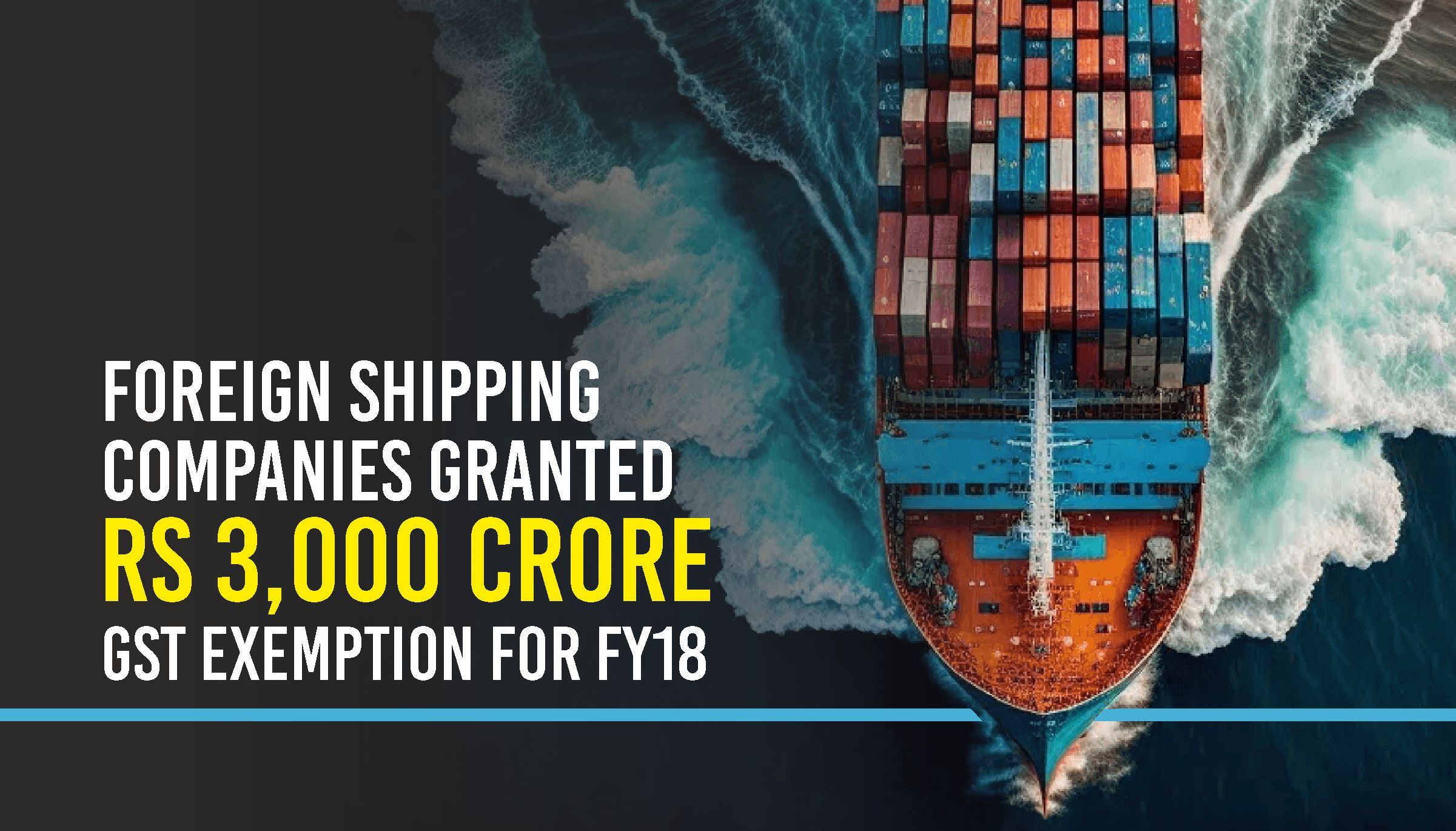Foreign Shipping Companies Granted Rs 3,000 Crore GST Exemption for FY18

In a major development, the Directorate General of Goods and Services Tax Intelligence (DGGI) has withdrawn a hefty tax demand of Rs 3,000 crore levied on 18 foreign shipping companies for the financial year 2017-18. This decision comes as a relief to several prominent international shipping firms operating in India, including industry giants like Maersk, Orient Overseas Container Line Ltd, and Hapag-Lloyd Mediterranean Shipping. The move follows the collective assurance by these companies that no services were imported during the 2017-18 period.
Background of the Shipping Lines GST Issue:
The issue began when the DGGI, responsible for monitoring and enforcing GST compliance, initiated an investigation in October 2023. The investigation focused on the Indian branches of foreign shipping companies and airlines, scrutinizing their compliance with the Goods and Services Tax (GST) under the reverse charge mechanism. The reverse charge mechanism requires the recipient of certain imported services to pay GST instead of the supplier.
Foreign shipping companies were flagged for not paying GST on various imported services, such as aircraft rental, maintenance, and crew salaries paid abroad. Notices were issued to these companies for the non-payment of GST on services imported since July 2017. The tax demand was particularly significant because it included services spanning from July 1, 2017, to March 2024, with a special focus on the financial year 2017-18.
Why the Rs 3,000 Crore GST Demand Was Withdrawn for FY18: An In-Depth Look
The crux of the issue lies in the interpretation and application of GST laws concerning imported services. Under the reverse charge mechanism, foreign companies with a presence in India are required to pay GST on services imported from outside India. However, the compliance and clarity around these provisions have been contentious, leading to disputes between the companies and tax authorities.
For the financial year 2017-18, the DGGI’s tax demand was based on the presumption that the Indian branches of these foreign shipping companies had imported services and were liable to pay GST. The companies, however, contested this claim, arguing that no such services were imported during the said period.
Following summonses issued by DGGI offices in Ahmedabad and Mumbai in February 2024, these companies took collective action. They approached the finance ministry, providing a detailed breakdown of the services imported during the period in question. After reviewing the submissions, the DGGI decided to withdraw the Rs 3,000 crore tax demand for FY18, acknowledging that the services in question were not liable for GST under the prevailing rules.
However, it is important to note that while the tax demand for FY18 has been rescinded, the issue remains unresolved for subsequent financial years. The DGGI continues to investigate the GST liability of these companies for the period from March 2018 to March 2024, with the final decision resting on the GST Council’s fitment committee.
Implications and the Road Ahead
The DGGI’s decision to withdraw the Rs 3,000 crore tax demand for FY18 is a significant relief for the foreign shipping companies involved. It sets a precedent for how GST-related disputes concerning imported services may be resolved in the future, particularly under the reverse charge mechanism.
However, the uncertainty surrounding the tax demand for subsequent years remains a cause for concern. The final decision on the applicability of GST to the imported services for the years after FY18 will be crucial in determining the financial liability of these companies. The GST Council’s fitment committee will play a pivotal role in this regard, as its decision will impact not only the companies involved but also the broader regulatory framework governing the taxation of imported services in India.
The withdrawal of the Rs 3,000 crore GST demand for FY18 marks a significant development in the ongoing saga between foreign shipping companies and Indian tax authorities. While the immediate relief is welcomed by the companies, the unresolved issues for the subsequent years underline the complexities involved in interpreting GST laws concerning imported services. As the situation unfolds, the decisions made in this case will likely influence future tax disputes and the broader application of GST in India.
